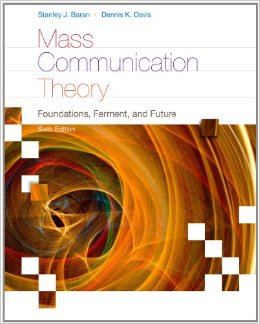Mass Communication Theory Foundations, Ferment, and Future Review of Chaper 1: DEFINING AND REDEFINING MASS COMMUNICATION When an organization (Source) employs a technology as a medium to communicate with a large audience, mass communication is said to have occurred. SCIENCE AND HUMAN BEHAVIOR Implementation of the scientific method is difficult for those studying the social world for four reasons: Most of the significant and interesting forms of human behavior are quite difficult to measure. How do we measure something like civic duty? Should we count the incidence of voting? Maybe a person’s decision not to vote is her personal expression of that duty. Try something a little easier, like measuring aggression in a television violence study. Can aggression be measured by counting how many times a child hits a rubber doll? Is gossiping about a neighbor an aggressive act? How do we measure an attitude (a predisposition to do something […]
SCIENCE AND HUMAN BEHAVIOR
Ours is a society that generally respects and believes its scientists. Science is one of the fundamental reasons why we enjoy our admirable standard of living and have a growing understanding of the world around us. But not all scientists are revered equally. British astronomer and philosopher John D. Barrow opened his 1998 book, Impossibility: The Limits of Science and the Science of Limits, with this observation on the value of science and its practitioners: Bookshelves are stuffed with volumes that expound the successes of the mind and the silicon chip. We expect science to tell us what can be done and what is to be done. Governments look to scientists to improve the quality of life and safeguard us from earlier “improvements.” Futurologists see no limit to human inquiry, while social scientists see no end to the raft of problems it spawns. (p. 1) The physical scientists and engineers […]
What is the Significance of Culture?
The Significance of Culture Only culture accounts for the success of human beings. We create culture, but ‘ culture in turn creates us. We are no longer the helpless victims of the natural environment. We make our own social environment, inventing and sharing the rules and patterns of behaviour that shape our lives. We use our knowledge to modify the natural environment as well. Without a culture transmitted from the past, each new generation would have to solve the most elementary problems Of human existence over again. It would be obliged to devise a family system, to invent a language, to discover fire, to create the wheel, and so on. Cultural inventions enable us to be insulated from the cold of the Arctic, to travel in outer space, and to live in submarinesall with|ut any recourse to physical evolution. Unlike other animals, we can self-consciously adapt to our environments and […]
